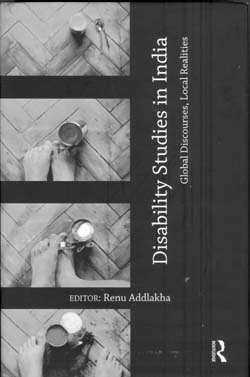An active engagement with disability in India only began in the mid-nineties. Some of the defining works on gender and disability in India were Anita Ghai’s (Dis)Embodied Form: Issues of Disabled Women1 Asha Hans’s and Annie Patri’s Women, Disability and Identity 2 and Amita Dhanda’s Legal Order and Mental Disorder on mental health, law and gender.3 Critical writing on disability in India, whether in the field of anthropology, law or social sciences is still at a nascent stage, despite the Persons with Disabilities (Equal Opportunities, Full Participation and Protection of Rights) Act being passed in 1995 and the UN Convention on the Rights of Persons with Disabilities (UNCRPD) coming into existence in 2008. In that respect, Renu Addlakha’s edited book Disability Studies in India: Global Discourses, Local Realities is an important contribution.
January 2014, volume 38, No 1

